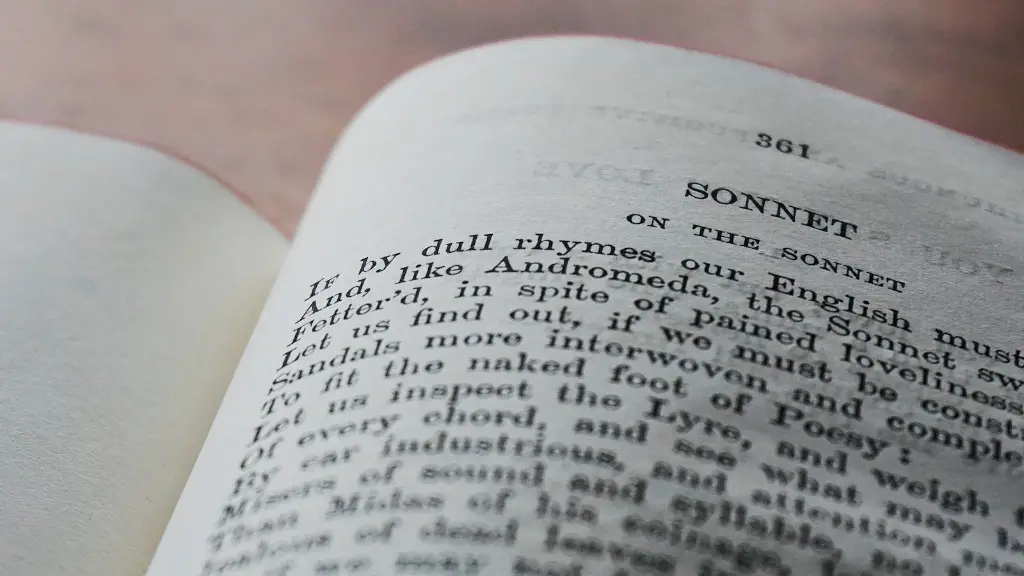Introduction
Walt Whitman is one of the most famous poets of the 19th century. He is often credited with creating a new form of American poetry that focused on human emotions and experiences. His writings went against the grain of the traditional English verse, emphasizing imagery and vivid language. What is Walt Whitman’s poetry really about? This article will discuss the main themes of Walt Whitman’s poetry and how his work continues to inspire readers today.
Themes in Whitman’s Poetry
The main themes of Whitman’s poetry focus on the natural and spiritual world around him. He was interested in the power of the human spirit, and often wrote about how people connected with the beauty of nature. His verses often explored the idea of unity among humanity, as well as the acceptance of death as a part of life. Whitman’s poetry was also strongly influenced by his views on democracy, which can be seen in his use of free verse.
In addition to these philosophical perspectives, Whitman’s poetry also explored themes of love, longing, and identity. He was known for writing vivid and powerful love poetry, as well as elegies and descriptive pieces that focused on his own identity. Whitman’s poetry became increasingly personal over time, as he began to write in the first-person perspective.
Influence of Nature
Nature was one of the main influences on Whitman’s poetry. He often wrote about the beauty of nature and its power to bring people together. Whitman was fascinated by the idea of a spiritual connection between humanity and nature, and he used vivid imagery to draw readers into his verses. He wrote about simple moments such as sunsets, storms, and the experience of walking in the woods, emphasizing how these experiences reconnect people with the divine.
Whitman’s love of nature often extended to natural objects such as birds, animals, and plants. He was known for using nature as a metaphor to explore human emotions, particularly those of love and longing. He was also interested in the idea of human progress, and many of his poems discussed how technology and industry were changing the way humans interacted with the world.
American Democracy
Whitman’s poetry was deeply influenced by his belief in American democracy and his desire to see all people treated equally. He was a passionate advocate for abolition, suffrage, and other progressive causes, as well as an admirer of President Lincoln. His poem “O Captain! My Captain!” became a beloved elegy to the assassinated President.
In addition to his political views, Whitman was also a vocal advocate of free verse. His use of sound and imagery was groundbreaking for the time, and inspired many future poets to embrace this unorthodox form of verse. He believed that a poem should be open to interpretation and not bound by a strict structure.
Legacy
Walt Whitman’s poetry is still celebrated today as a milestone in American literature. His groundbreaking work has left a lasting legacy on American culture, and his work continues to inspire readers and writers around the world. His passionate love of nature and his commitment to democracy remain a source of inspiration for many.
Modern Influences
The influence of Whitman’s poetry can still be seen today in the work of modern poets. Writers such as Allen Ginsberg and Walt Whitman have been inspired by Whitman’s form and his commitment to free verse. His poetry has also inspired artists in other mediums, from songwriters to painters.
Whitman’s work has become a part of the American experience, and its themes of love, longing, and democracy continue to resonate with readers today. His vibrant language and imagery remain a source of inspiration for writers and lovers of literature.
Conclusion
Walt Whitman’s poetry is a testament to the human experience. His work explored the connectedness of humanity, the beauty of nature, and the power of love and longing. By breaking away from traditional English verse and writing in free form, Whitman created a new form of poetry that has become a milestone in American literature. His work continues to inspire readers, writers, and artists around the world.


